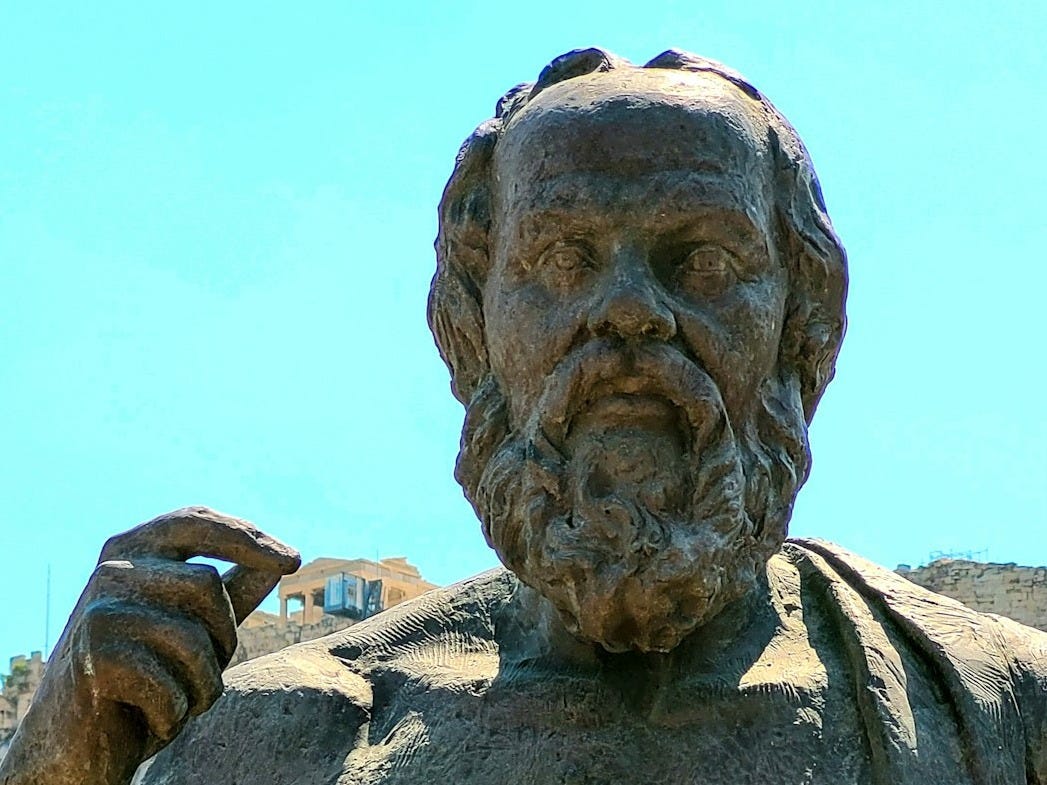Was Socks biased?
did he need some adjustments...

I wanted to write this every time I saw this Socrates quote, so here goes…
An unexamined life is not worth living. - Socrates
When I read this quote ages ago, it felt like Socrates was being judgemental about all human beings. That he was advising everyone that if they did not examine life then it is not worth living. For a long time, I believed that too (this was years back) - quotes that are superfluous reading without context behind them and it did seem like advice for the masses. But it was not.
I read the original Greek quote that was purported to have been spoken (documented by Plato his student) and the context in which he spoke it. He was speaking about himself. Given a choice between living in exile (without practicing his craft and thinking) and dying he preferred dying rather than being in a situation where he could not be what he wanted to be - a person who examines his own life to the fullest and has agency over his thinking and action.
Learnings from this - it is not all as it seems, context and situation matter to give nuance behind something that is said.
.
.
.
.
.
.
Musings #766 over 1328 days - Tuesday, 10 September 2024, daily writing rate of about 57%
more…
https://en.wikipedia.org/wiki/The_unexamined_life_is_not_worth_living
This is the phrase: "ὁ δὲ ἀνεξέταστος βίος οὐ βιωτὸς ἀνθρώπῳ", which comes from Plato's Apology 38a. The literal meaning is "And an unexamined life is not worth living for man". So the "for man" was left out in your translation. Here are the meaning of each word: ὁ - the, δέ - and, but, ἀνεξέταστος - unexamined, without enquiry, βίος - life, οὐ - not, βιωτός - worth living, ἀνθρώπῷ - man, woman (singular, dative). There is no verb here, and that is normal where "is" is implied.

